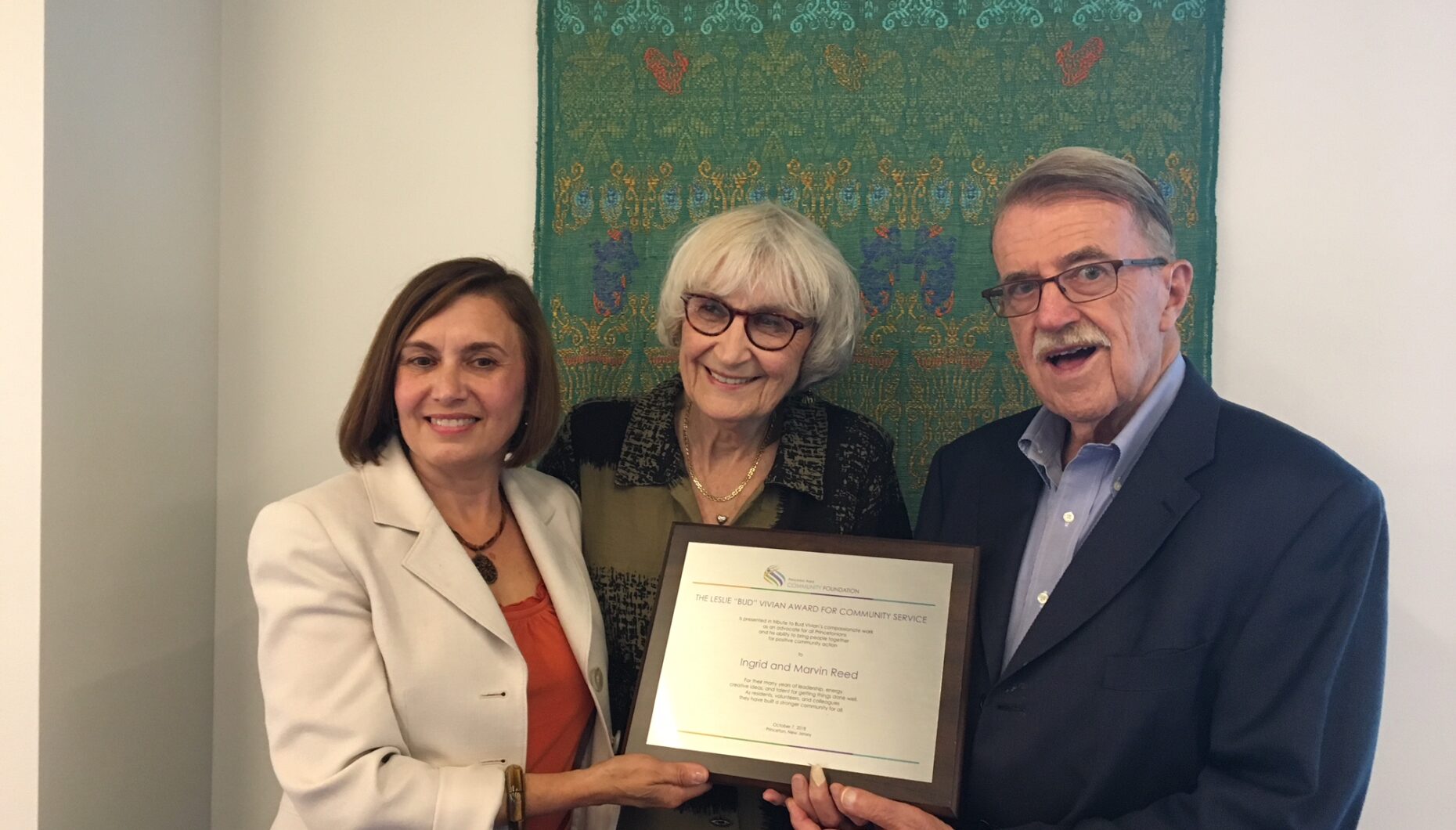By Pam Hersh
I had emailed renowned New Jersey political analyst Ingrid Reed about the Princeton Adult School/Princeton Public Library’s free, upcoming lectures that Ingrid organized and would host on the topic of the 2020 election. The email I received from her in return had nothing to do with the lecture series. Instead, she told me that Marvin Reed, her husband of nearly 61 years and partner in dynamic advocacy for democracy, had died on Monday, Oct. 12, 2020.
Marvin Reed, former Princeton Borough mayor, former chair of the Central Jersey Transportation Forum, and super citizen in the years following his stint as borough councilman and mayor, took community activism to the heights of excellence and civility. Marvin’s tireless work in Princeton and the Mercer County region, together with Ingrid’s work in the state, had the same goal – to make New Jersey’s governing entities accessible, honorable, and productive on behalf of the state’s residents.
On the very long list of accomplishments, I value one in particular. Marvin and Ingrid gave me a priceless gift – hope for my grandchildren’s future, even in these rather despairing times. My kids, one of whom is very active in local government and works as an affordable housing advocate, and the other, an urban planner running a downtown business advocacy organization, said that their career inspiration and desire to do something for their local community came from watching Marvin and Ingrid in action over the course of decades.
Marvin, who from 1985 to 2003 served first as Princeton Borough Council member and then mayor for 13 years, was both in office and out of office a strategic and always prepared decision maker, tackling all issues with steady commitment and determination to find a solution rather than to block a solution. He had none of the splash and pizzazz of his predecessor Mayor Barbara Sigmund, famous for her colorful New Orleans style and exuberant personality. Marvin had no memorable wardrobe items or songs or poetry or colorful jokes or even off color ones – at least not in my presence. He seemed unconcerned about being memorable for anything other than getting things done for the town. He took on all the hard issues – public transportation, library/Hinds Plaza development, Spring Street parking garage, affordable housing, hospital relocation, sustainability, open space, the health of the downtown, community policing, social justice, parks and pathways, consolidation of the borough and township, town-gown relationship, planning, zoning, and regional traffic. Nothing was too daunting. He just stuck to it, negotiated, found creative compromises, made people mad, but that was okay with Marvin. He had one goal – to serve the people of his community with hard work and honesty and negotiate deals to accomplish something for the residents. Marvin did for the town what great U.S secretaries of state have done for our country – take seemingly intractable problems and negotiate solutions.
Marvin was going to be the prototype for a town/gown sitcom that I wanted to write (but never did) with Justin Harmon, who served as Princeton University’s director of Communications at the same time as I was Princeton University’s director of Community and State Affairs. The problem we had with our hero mayor was that he had so few qualities that could be mocked. I had trouble making fun of him. The only quality we found humorous was his ability to work a room – negotiating with five people at once on different topics – always looking past the person with whom he was speaking for the next person with whom he needed to speak and solve some problem. I had a fantasy of recruiting Bob Newhart to play the role of a Marvin Reed type of mayor.
Even when his health began to fail because of Parkinson’s disease, he still was eager to attend lectures and community meetings and engage in conversations on local issues. I occasionally would visit Marvin and Ingrid for dessert and coffee, after they moved out of Princeton where they had lived for more than 50 years, and settled at Stonebridge in Montgomery Township. During my last visit several months ago prior to the pandemic, Marvin had trouble speaking above a whisper. But when he spoke, he never complained or whined about his physical deterioration. He generally wanted to voice his opinion on some university project or Princeton’s transit service, one of his favorite topics. In 2016, Princeton governing officials launched a new freeB shuttle bus that was named in honor of Marvin Reed, who spearheaded the start-up of the municipal shuttle service.
There are countless organizations and causes to which I could make a donation in Marvin’s honor. But I think I will donate to a cause that generally is not associated with Marvin -The Garden Theatre. Few people realize that it was Marvin’s negotiation 30 years ago with Princeton University and his effort to find a movie operator Destinta Theaters (prior to the current non-profit theater management corporation Renew Theaters) that saved the theater facility (owned by Princeton University) from becoming a university office building. Marvin, who also was president of Downtown New Jersey from 1996-2001, knew how important a community theater was to the health of the community – and to his own health, since he was a movie buff.
The Garden was supposed to celebrate its 100th birthday this fall. Marvin, 11 years short of 100, was planning on celebrating that occasion. Neither made the celebration. I hope that with community support the theater will survive COVID. I know, however, that Marvin’s legacy will live on through not only the institutions he influenced, but also the countless individuals – like my kids – whom he mentored and inspired.

